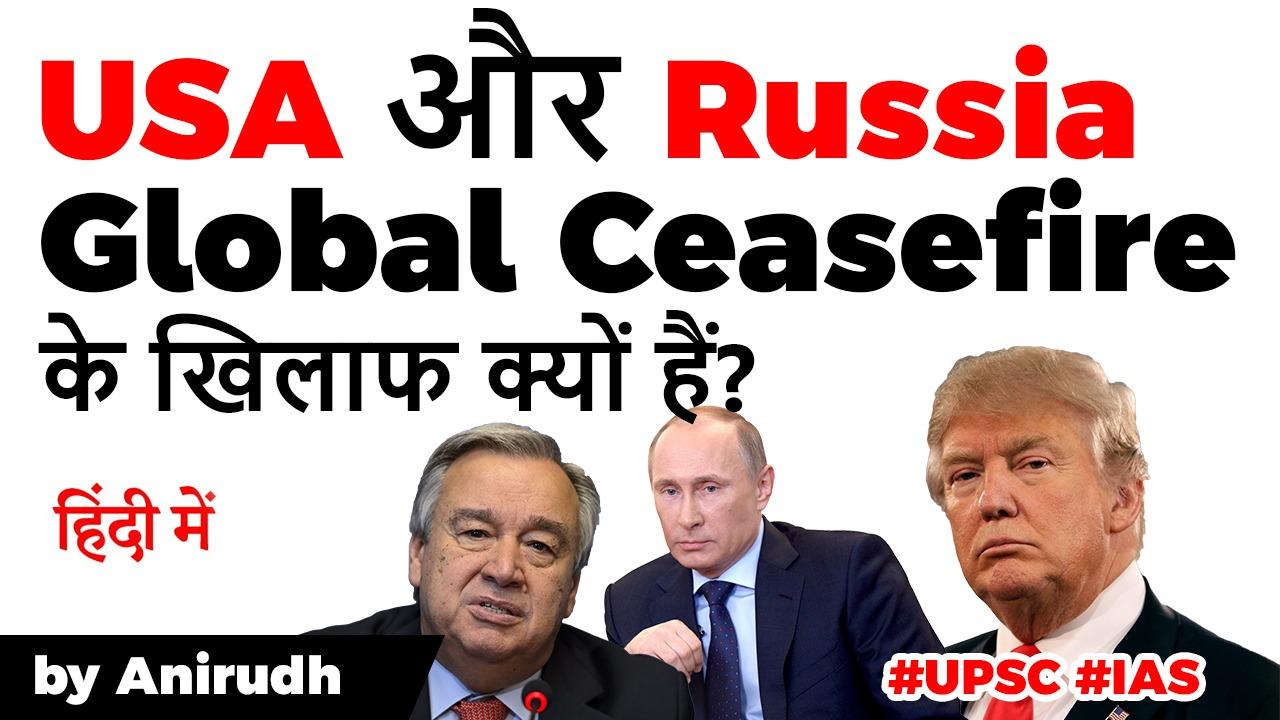Table of Contents
- The UN secretary-general, António Guterres, called for an immediate end to fighting involving governments and armed groups in all conflict areas almost one month ago.
- But the call does not insist on a binding, universal ceasefire, allowing exceptions to be made at the discretion of individual member states.
- COVID-19 UN chief calls for global ceasefire to focous on ‘the fight of our lives’
- Guterres’s call was endorsed earlier this month by charities, religious organisations and human rights groups. Pope Francis threw his weight behind it in an Easter Sunday address.


- “An immediate global ceasefire would markedly reduce these impacts, allow for much-needed humanitarian assistance and protection, and hopefully diminish the spread of Covid-19,”

US and Russia Didn’t Agree
“both governments fear that a universal ceasefire could potentially constrain their own efforts to mount what they consider legitimate counter-terrorism operations overseas”.
US Didn’t Agree
Despite strong support for a universal truce from dozens of countries, including US allies such as Britain, France and Germany, as well as human rights groups, charities and the pope, the Trump administration is refusing
Why?
Concerns that such a measure could hinder their ability to prosecute military operations against terrorist groups, for example ISIS in Iraq.
President Trump want to retain the freedom to launch attacks on proIranian militia in Iraq.


Why?
“The US is also concerned that a blanket ceasefire could inhibit Israel’s ability to engage in military operations throughout the Middle East,”
Why?
“I don’t think we can both have an AUMF to take direct military action against them and sign a global peace agreement,” AUMF: Authorization for Use of Military Force, a legal mandate that allows U.S. strikes against al Qaeda, the Islamic State, and other affiliated groups.
Russia Didn’t Agree
Russia’s president, Vladimir Putin, is believed to have similar reservations regarding the impact on Russian military operations in Syria.
Why?
Russian Foreign Ministry said: “We are highly concerned over the situation on territories controlled by terrorist groups, who could not care less about people’s wellbeing. These zones might potentially become most prone to the spread of the infection. We are confident that counter-terrorist measures must be carried on.”

Conclusion
If the big powers can choose to ignore a UN-mandated global ceasefire when it suits them, analysts warn, then non-state actors and terrorist groups may decide to do likewise.






















 WhatsApp
WhatsApp